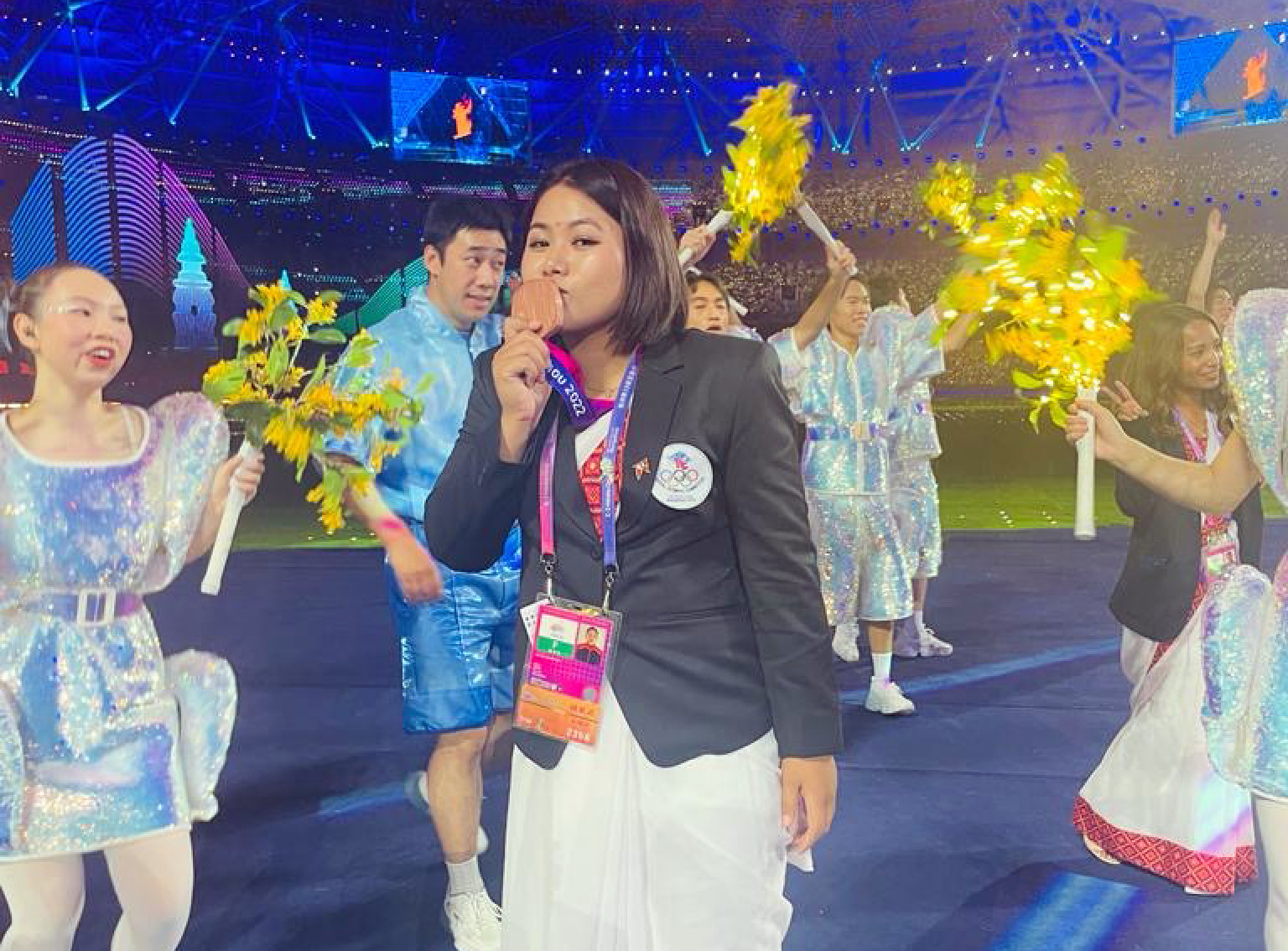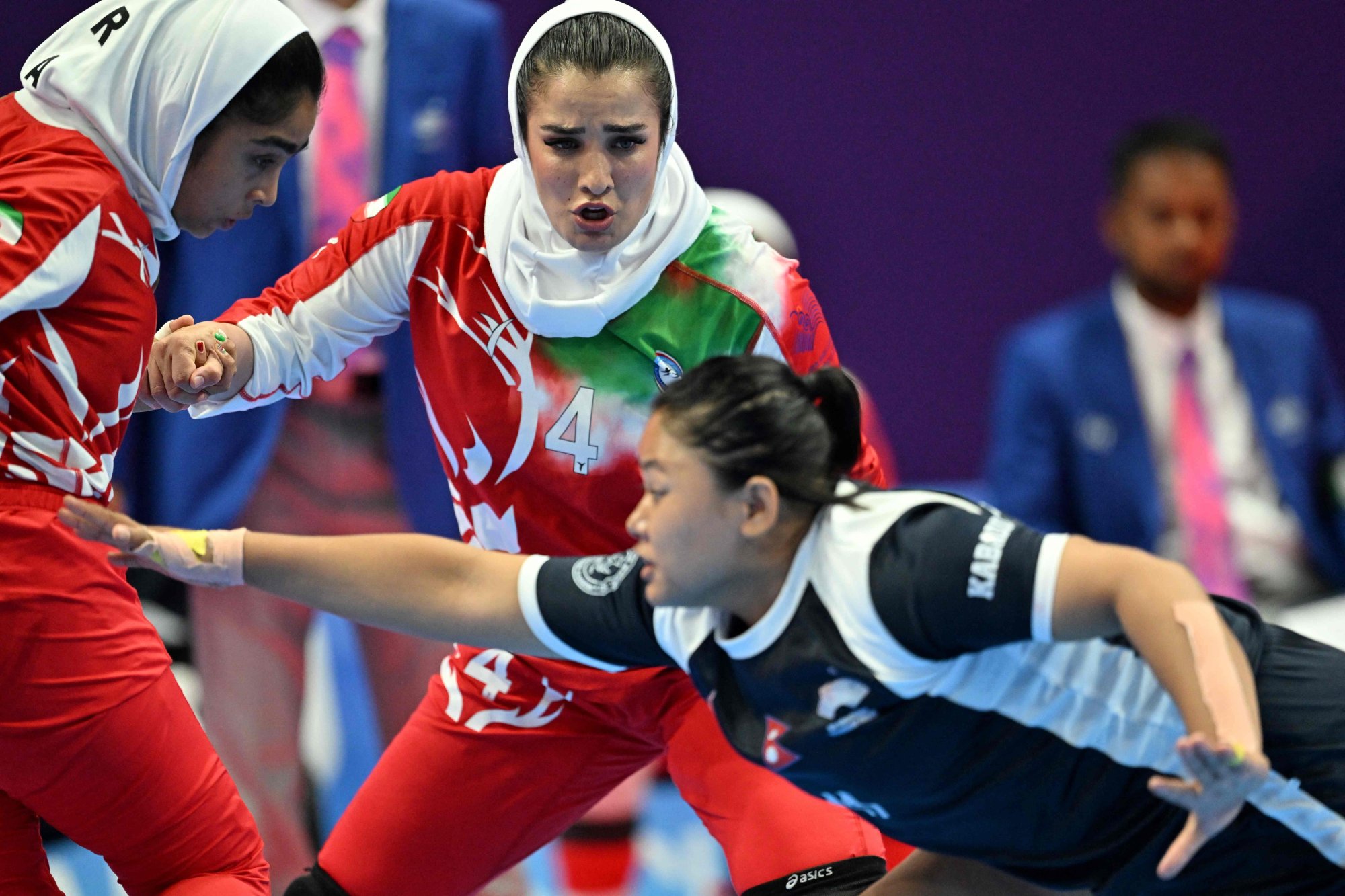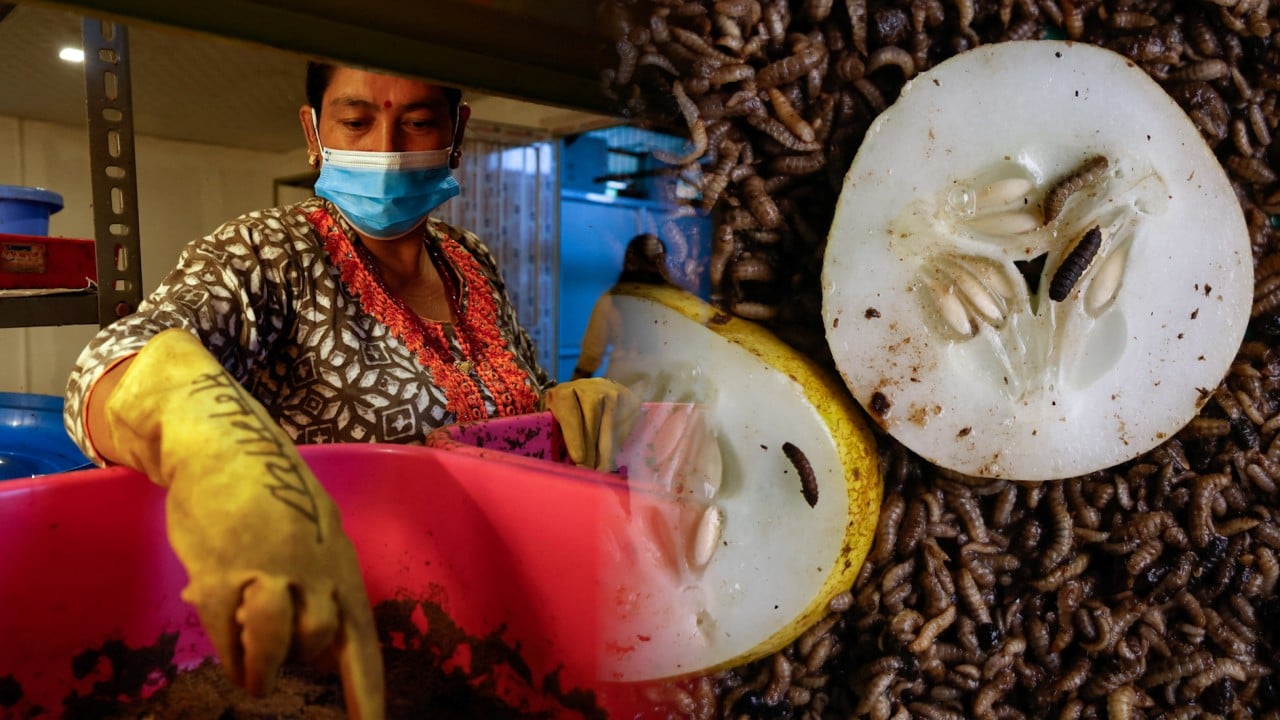Sports such as kabaddi, which lack the mass appeal of football, cricket or volleyball, are further pushed to the margins.
Playing the long game: Asia’s winning sportswomen start to cash in
Playing the long game: Asia’s winning sportswomen start to cash in
Though a popular sport in schools, kabaddi players in Nepal say they hardly get enough professional training – the national team only prepared three months before the Hangzhou Games – and there are not enough national competitions to test and sharpen their skills. Nepal does not even have a dedicated training facility for kabaddi – this year’s women’s team were forced to practise in a table tennis hall before their debut Asian Games match.
“This is our biggest concern right now,” said Parbati Rai, chief coach for the women’s kabaddi team. “Kabaddi isn’t a sport in the shadows, but it’s a sport that’s intentionally been overlooked.”
Nepal started holding national men’s kabaddi tournaments in 1980, with the first women’s match added two years later. The women’s team has mostly played regional matches with their South Asian counterparts, winning a bronze medal at the 2010 and 2016 South Asian Games, and a silver medal in 2019.

Rai, the coach, said the All Nepal Kabaddi Association, which oversees the sport, should be more proactive in promoting kabaddi and have more players compete in national and international events. Referring to her team, she said that women players were equally determined and should be treated the same as men’s teams, which often receive preferential treatment in terms of taking part in international sporting events.
Now 52, Parbati Rai said she learned to play at a time when there were few women in sports. She had to finish her household chores before training, and though her parents were initially hesitant, their only condition later for their daughter to stay away from karate for fear of injuries.
Nepal’s forests and trees bloom under ‘honest, transparent’ female bosses
Nepal’s forests and trees bloom under ‘honest, transparent’ female bosses
Menuka Kumari Rajbanshi, the current women’s kabaddi captain, is among the players following her coach’s footsteps. Unlike many others, she said her family staunchly supported her decision to become an athlete.
The 28-year-old said she wanted to become a sportswoman to be recruited in the police or army. Many athletes in Nepal are often contracted by the uniformed services or make the decision to join up to continue playing.
“My father was also in the police, and I really wanted to carry on his legacy,” said Rajbanshi, who now serves in the Nepali Army.
But despite her family’s support, Rajbanshi said she was tormented by neighbours in her hometown in Morang district. People often said there was no future in sports and questioned the family’s decision of sending their young daughter to play outdoors instead of marrying her off.

Though she has proved them wrong, Rajbanshi believes that the lack of financial incentives makes it challenging for many women to continue in sports. She said some of her team members have to repay debt and take care of their families, and the government should provide more for national athletes.
In 2019, national gold-medallist athlete Tulsa KC abandoned her sporting career in track and field, and flew to Qatar right before the South Asian Games, hoping to “make her life better”. Hundreds of young Nepalis leave for foreign employment in the Gulf and other regions every day due to limited employment and poor wages at home.
The women’s kabaddi team received 2,000 Nepali rupees (US$15) per day allowance during the three-month training period ahead of the Asian Games, according to coach Rai. She said it barely covered their accommodation, food and other expenses.
Nepal only allocates a fraction of its budget to sports, and most funds are invested in infrastructure development. Government spending on athletes is minuscule, and they are mostly rewarded only after winning international sporting events.
The government awarded 400,000 rupees to each female kabbadi player after the team secured a silver medal at the 2019 South Asian Games and has promised to reward them for the team’s Asian Games win too, though the amount has not been disclosed, according to Tulsi Thapa, president of All Nepal Kabaddi Association. But many players of kabaddi and other sports said such one-off rewards, while enticing, are not enough.
Santoshi Shrestha, a gold medallist athlete, said she was rewarded 900,000 rupees (US$6,750) after winning the 10,000-metre race at the 2019 South Asian Games. But she is concerned about the majority of sportspeople who train equally hard but do not make it to the top.
“The state shouldn’t just reward those who have won medals,” she said. “It should also provide financial incentives to those who have the potential to win, the champions in the making.”

Shrestha, who now partly devotes her time as a sports programme officer at The Yearley Trust non-profit organisation, aims to train and inspire more champions like her from an early age. At the Nalang Model Academy, a community school in Dhanding district, just over 110km (68 miles) from Kathmandu, she wishes to empower young girls through sports and encourage them and their families to pursue it professionally.
Shrestha’s family objected to her becoming a full-time athlete after graduating with a public health degree. But she said she had to give it a chance after winning a few local competitions despite limited training – it was a risk she does not regret.
“I can always go back to working in public health later in life,” she said. “But I can only play and compete in sports for as long as my age and health allow.”
Is the Fifa Women’s World Cup more than just ‘trickle-down inspiration’?
Is the Fifa Women’s World Cup more than just ‘trickle-down inspiration’?
Shrestha, along with the kabaddi players, said the state needs to invest more in preparing young players and provide them with financial security. Unless that happens, they said Nepalis are unlikely to see sports as a viable career option, resulting in a dearth of good players.
Meanwhile, Anuja Kulung Rai hopes that big wins in international competitions can help shift such attitudes. She said the success of the women’s kabaddi team and the likes of karate player Arika Gurung, who won Nepal’s only other medal in Hangzhou, will inspire others.
“The next generation is going to look up to us and aspire – we’re idols to them,” she said. “So if we get the recognition and rewarded appropriately, the next generation will see there is a future in sports and might be more inclined to join this field.”


